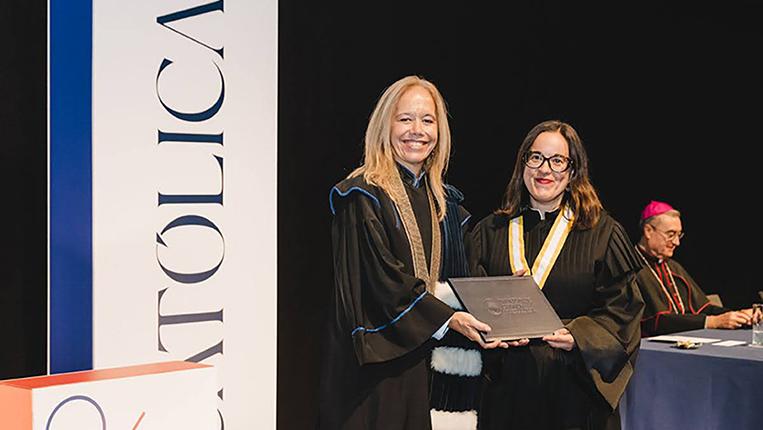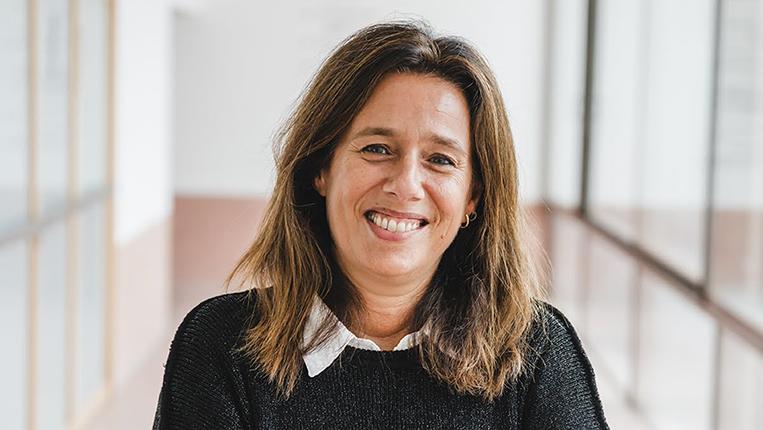Ana Moreno and Pedro Ribeiro, students at the Faculty of Education and Psychology of the Universidade Católica Portuguesa (FEP-UCP), have been selected for the prestigious EU TalentOn 2024, joining 108 young scientists from the European Union to tackle today's major global challenges.
With extensive experience in palliative care at the Human Neurobehavioural Laboratory (HNL), Ana Moreno was selected for the Cancer Prevention & Care arena with a proposal centred on stress resilience. In the competition, her Breath for Life project, a proposal for the early detection of cancer, won her the EU TalentOn 2024.
Pedro, involved in the UCP/FEP/HNL HealthySoils project, was selected for the Soil Deal for Europe arena, where he presented a proposal based on an adaptation of the UCP/FEP/HNL HealthySoils project.
The event, which took place from 9 to 13 September in Katowice, Poland, was part of the Katowice European City of Science celebrations and represented a unique opportunity for Católica to reinforce its commitment to innovation and entrepreneurship in the search for collaborative solutions to global challenges.
In Katowice, the two young scientists developed innovative solutions to complex problems in multidisciplinary teams. Each team presented viable and scientific proposals, judged on their creativity and innovation, scientific merit and impact, feasibility and appeal.
During the week, Ana and Pedro, with their teams, faced intellectual and personal challenges. ‘Taking part in EU TalentOn 2024 was an indescribable experience’, Ana recalls. ‘What began as a challenge ended in a week of learning and personal and professional growth. The whole journey was invigorating, from the welcome and support from the organising team, to the inspiration and feedback from the experts who accompanied us, and the relationships created with our teammates and other participants’.
Pedro emphasises the intensity of the process. ‘It's true that it was an environment of constant stress, a week to create an entire project that not only had the requirement to be innovative but also scientifically correct and viable is something bordering on the impossible, so I think that as participants we should all be satisfied and proud of our work'.
The interaction with young scientists from different areas and backgrounds was one of the most enriching aspects of the experience. ‘It was a week in which each of us was challenged to give wings to the ideas and projects that led us to fall in love with science in the first place. I'm taking back with me a unique experience that will certainly have future ramifications and that will remind me of what fascinated me about academia: contributing to a better world’, says Ana.
For Pedro, the most inspiring thing was collaborating with colleagues of different nationalities, united by a common goal: ‘Working side by side with strangers, knowing that the only thing in common between the team members is the belief in their abilities and the hope for a more sustainable and just Europe, was truly inspiring’. He added: ‘We have to give a lot of credit to the training that Católica offered us, because it is to this that we owe part of the courage needed to embark on this challenge'.
EU TalentOn 2024 reaffirmed the role of Universidade Católica Portuguesa as an entrepreneurial and proactive institution in training talented and resilient young people.








